Английский язык для специальных и академических целей: Международные отношения и зарубежное регионоведение. Часть 1 - [87]
Still, the conflict between Russia and the EU over the neighborhood seemed to be avoidable, as Russian President Vladimir Putin's attempts to undermine the Eastern Partnership appeared to be successful. Armenia was brought into the Russian camp, apparently balking in the face of significant pressure from Russia. (One of the country's pressure points is its fear of losing Russian support in the struggle with energy-rich Azerbaijan over the disputed territory of Nagorno-Karabakh.) And in Ukraine Putin managed to push then President Viktor Yanukovych to make a U-turn in November 2013 and cancel his country's process of EU association shortly before the Vilnius summit began.
At that point it looked as if Russia had won what it defined as a geopolitical struggle. Of the six Eastern Partnership countries originally in line to sign association agreements and free trade agreements with the EU, only Georgia and Moldova would have remained on track. Whether Moscow would have interfered to prevent the signing of the agreements or would have taken a longer-term approach to undermine the Western course was an open question. Both countries are vulnerable, especially because they have breakaway regions on their territory (Transnistria in Moldova, South Ossetia and Abkhazia in Georgia) that Russia supports. The governments' struggles with these regions suck up enormous political energy and give Moscow plenty of leverage and potential to destabilize these countries.
But then came what nobody had expected: the popular movement on the Maidan in Kiev, a huge and powerful pro-EU demonstration, pushing the country back into the Western sphere. To many Ukrainians, association with the EU held the double promise of getting rid of both predatory, corrupt elites and Russia's stranglehold. They were not ready to accept that their country's turn westward had been suddenly stopped.
This bottom-up movement set off a chain of events that ended with an open and sharp confrontation between Russia and the EU. Yanukovych was forced to leave the country. Russia invaded and annexed Crimea, then started to destabilize Ukraine's east by using proxies. The EU, massively challenged, had no choice but to take sides against Russia in a struggle for European values, provoked by a Russia that was undermining core principles of Europe's peace order. Germany acted as the primary interlocutor for the EU in a conflict that drew in both the bloc and the United States, which agreed to jointly put diplomatic pressure on the Kremlin and threaten Russia with massive economic sanctions.
The Reader
Still, the EU remains very reluctant to move with full steam toward a confrontation with Russia, for a number of reasons: economic ties are strong, especially in energy, finance, and the arms industry. Western European countries are less concerned about Russian aggression and want EU attention to instead move toward the Southern neighborhood. Some EU members fear being confronted with a Russia that appears to be driven more by emotion than by rational considerations. And European governments cannot ignore sections of the public that sympathize with Russian action (partly driven by values that they feel are supported by Russia, partly driven by the wish to balance U.S. influence by moving closer to Russia).
While leaders on the EU side face the challenge of mobilizing support for a more confrontational stance toward Russia, Moscow must recognize that its means are limited and that it cannot win against an EU even if the bloc is reluctant to engage in the competition. It has had to repeatedly lower its goals, from full control of Ukraine to spreading instability in some Ukrainian regions. Now it seems that Moscow's aim in Ukraine is to prevent the emergence of a stable liberal democracy that is firmly anchored in the EU, an outcome that would minimize Moscow's ability to influence Ukraine's political course and that would call into question Russia's own model of governance.
Beyond Ukraine, Russia has Georgia and Moldova to think about. In both countries it is unclear to what extent the Kremlin is going to use its leverage to block or undermine their attempts to build closer ties with the EU; both signed agreements with the EU on June 27.
The EU is locked into a difficult geopolitical conflict with Russia that it absolutely wanted to avoid. While a new iron curtain has not descended across the continent, it is clear now that the EU and Russia live in different worlds, a divide that is becoming ever harder to bridge.
In the struggle over Ukraine, both sides have lost illusions, about themselves and about the other. The EU understands now that it has to back up foreign policy with substantial power — in a world that is much less “postmodern” than Europeans have hoped for in the past, a world that still largely looks at the international system in the terms of classical power politics. It also understands that Russia is not interested in the kind of partnership Europeans — guided largely by Germans — have proposed for two decades.
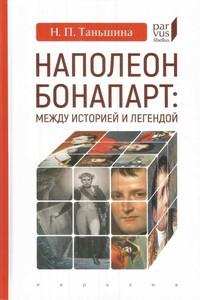
Наполеон притягивает и отталкивает, завораживает и вызывает неприятие, но никого не оставляет равнодушным. В 2019 году исполнилось 250 лет со дня рождения Наполеона Бонапарта, и его имя, уже при жизни превратившееся в легенду, стало не просто мифом, но национальным, точнее, интернациональным брендом, фирменным знаком. В свое время знаменитый писатель и поэт Виктор Гюго, отец которого был наполеоновским генералом, писал, что французы продолжают то показывать, то прятать Наполеона, не в силах прийти к окончательному мнению, и эти слова не потеряли своей актуальности и сегодня.
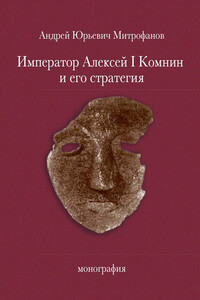
Монография доктора исторических наук Андрея Юрьевича Митрофанова рассматривает военно-политическую обстановку, сложившуюся вокруг византийской империи накануне захвата власти Алексеем Комнином в 1081 году, и исследует основные военные кампании этого императора, тактику и вооружение его армии. выводы относительно характера военно-политической стратегии Алексея Комнина автор делает, опираясь на известный памятник византийской исторической литературы – «Алексиаду» Анны Комниной, а также «Анналы» Иоанна Зонары, «Стратегикон» Катакалона Кекавмена, латинские и сельджукские исторические сочинения. В работе приводятся новые доказательства монгольского происхождения династии великих Сельджукидов и новые аргументы в пользу радикального изменения тактики варяжской гвардии в эпоху Алексея Комнина, рассматриваются процессы вестернизации византийской армии накануне Первого Крестового похода.
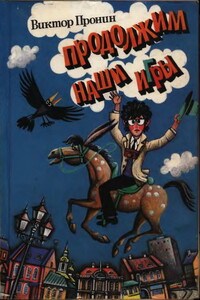
Виктор Пронин пишет о героях, которые решают острые нравственные проблемы. В конфликтных ситуациях им приходится делать выбор между добром и злом, отстаивать свои убеждения или изменять им — тогда человек неизбежно теряет многое.
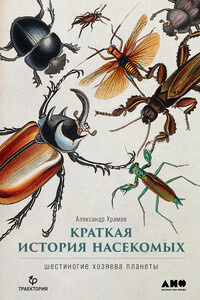
«Любая история, в том числе история развития жизни на Земле, – это замысловатое переплетение причин и следствий. Убери что-то одно, и все остальное изменится до неузнаваемости» – с этих слов и знаменитого примера с бабочкой из рассказа Рэя Брэдбери палеоэнтомолог Александр Храмов начинает свой удивительный рассказ о шестиногих хозяевах планеты. Мы отмахиваемся от мух и комаров, сражаемся с тараканами, обходим стороной муравейники, что уж говорить о вшах! Только не будь вшей, человек остался бы волосатым, как шимпанзе.
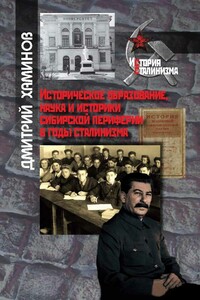
Настоящая монография посвящена изучению системы исторического образования и исторической науки в рамках сибирского научно-образовательного комплекса второй половины 1920-х – первой половины 1950-х гг. Период сталинизма в истории нашей страны характеризуется определенной дихотомией. С одной стороны, это время диктатуры коммунистической партии во всех сферах жизни советского общества, политических репрессий и идеологических кампаний. С другой стороны, именно в эти годы были заложены базовые институциональные основы развития исторического образования, исторической науки, принципов взаимоотношения исторического сообщества с государством, которые определили это развитие на десятилетия вперед, в том числе сохранившись во многих чертах и до сегодняшнего времени.
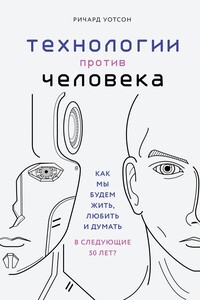
Эксперты пророчат, что следующие 50 лет будут определяться взаимоотношениями людей и технологий. Грядущие изобретения, несомненно, изменят нашу жизнь, вопрос состоит в том, до какой степени? Чего мы ждем от новых технологий и что хотим получить с их помощью? Как они изменят сферу медиа, экономику, здравоохранение, образование и нашу повседневную жизнь в целом? Ричард Уотсон призывает задуматься о современном обществе и представить, какой мир мы хотим создать в будущем. Он доступно и интересно исследует возможное влияние технологий на все сферы нашей жизни.